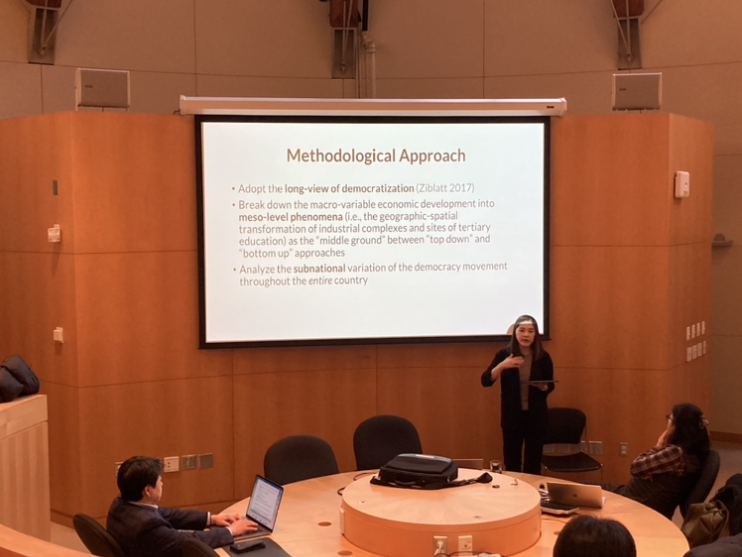
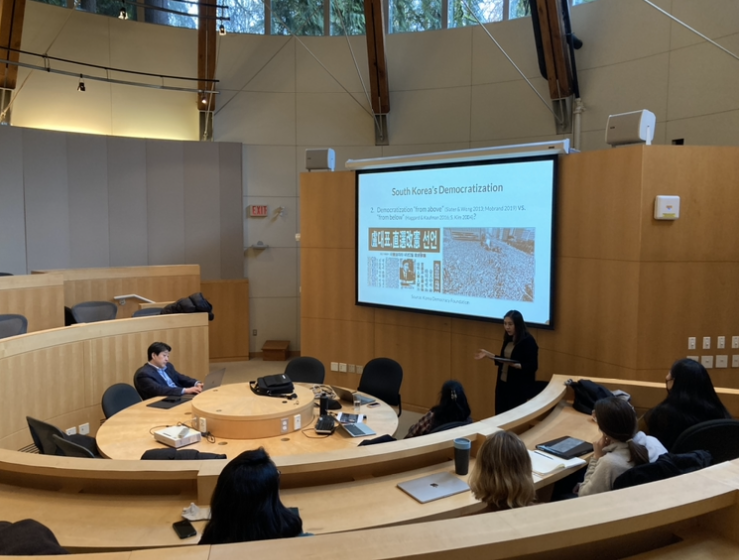
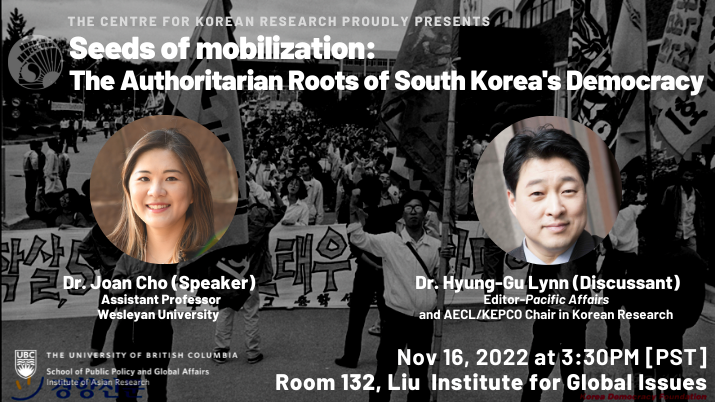
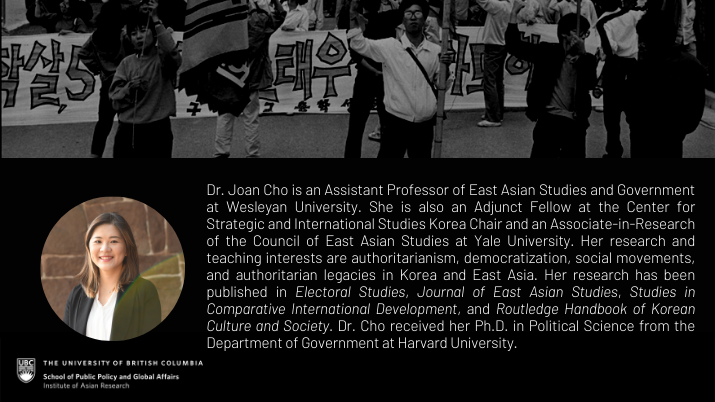
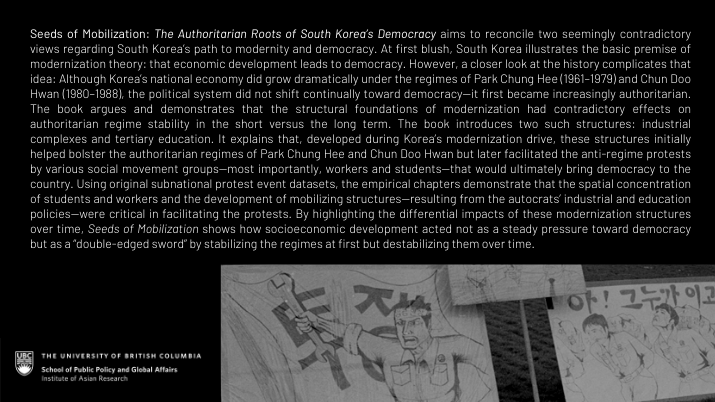
- Abstract: Seeds of Mobilization: The Authoritarian Roots of South Korea’s Democracy aims to reconcile two seemingly contradictory views regarding South Korea’s path to modernity and democracy. At first blush, South Korea illustrates the basic premise of modernization theory: that economic development leads to democracy. However, a closer look at the history complicates that idea: Although Korea’s national economy did grow dramatically under the regimes of Park Chung Hee (1961–1979) and Chun Doo Hwan (1980–1988), the political system did not shift continually toward democracy—it first became increasingly authoritarian. The book argues and demonstrates that the structural foundations of modernization had contradictory effects on authoritarian regime stability in the short versus the long term. The book introduces two such structures: industrial complexes and tertiary education. It explains that, developed during Korea’s modernization drive, these structures initially helped bolster the authoritarian regimes of Park Chung Hee and Chun Doo Hwan but later facilitated the anti-regime protests by various social movement groups—most importantly, workers and students—that would ultimately bring democracy to the country. Using original subnational protest event datasets, the empirical chapters demonstrate that the spatial concentration of students and workers and the development of mobilizing structures—resulting from the autocrats’ industrial and education policies—were critical in facilitating the protests. By highlighting the differential impacts of these modernization structures over time, Seeds of Mobilization shows how socioeconomic development acted not as a steady pressure toward democracy but as a “double-edged sword” by stabilizing the regimes at first but destabilizing them over time.